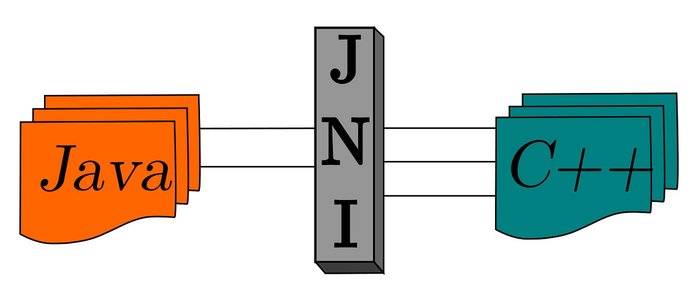Introduction to JNI Protection in Games
In the realm of game development, safeguarding the integrity of applications is paramount. One critical aspect of this security landscape is JNI protection. But what is JNI, and why is its protection vital in gaming?JNI, or Java Native Interface, is a framework that allows Java code running in a Java Virtual Machine (JVM) to call and be called by native applications and libraries written in other languages like C or C++. This capability is essential in game development for performance optimization and accessing platform-specific features. However, it also introduces potential security vulnerabilities, making JNI protection a crucial consideration for developers.

Understanding the Java Native Interface (JNI)
To appreciate the importance of JNI protection, it's essential to understand the role of JNI in game development:▪ Performance Optimization: JNI allows developers to execute performance-critical code in native languages, enhancing the efficiency of game applications.
▪ Access to Platform-Specific Features: Through JNI, games can leverage platform-specific APIs and hardware features not directly accessible through Java.
▪ Integration with Existing Libraries: JNI facilitates the integration of existing native libraries, enabling code reuse and reducing development time.
However, these advantages come with security trade-offs, as JNI can bypass Java's security mechanisms, potentially exposing applications to risks.
Security Risks Associated with JNI in Games
While JNI offers significant benefits, it also presents several security challenges:▪ Bypassing Java Security: Native code executed through JNI is not subject to Java's security manager, allowing it to perform operations that could compromise application security.
▪ Memory Manipulation: Malicious actors can exploit JNI to manipulate memory, leading to unauthorized access or modification of game data.
▪ Reverse Engineering: Native libraries can be reverse-engineered more easily than Java code, exposing proprietary algorithms and sensitive data.
These risks underscore the necessity of implementing robust JNI protection strategies in game development.
Strategies for Effective JNI Protection
To mitigate the security risks associated with JNI, developers should consider the following protection strategies:▪ Code Obfuscation: Obfuscating native code makes it more difficult for attackers to understand and reverse-engineer the application's logic.
▪ Integrity Checks: Implementing runtime checks can detect unauthorized modifications to native libraries, alerting the application to potential tampering.
▪ Encryption: Encrypting sensitive data and native libraries adds an additional layer of security, preventing unauthorized access.
▪ Access Control: Restricting access to native methods and validating inputs can prevent misuse of JNI functions.
These measures collectively enhance the security posture of game applications utilizing JNI.
JikGuard: A Solution for Game JNI Protection
One notable solution in the realm of JNI protection is JikGuard. This platform offers comprehensive security features tailored for game development:▪ Instant Integration in 30s: JikGuard can be integrated into your game within 30 seconds, streamlining the development process.
▪ Zero Coding Required: No additional coding or SDK deployment is necessary, simplifying the integration process.
▪ Specialized Customization: JikGuard offers specialized customization for Unity, Unreal Engine, and Cocos, ensuring compatibility with various game engines.
▪ Comprehensive Encryption: The platform encrypts game code, assets, and resources, enhancing overall security.
▪ Elite Game Anti-Cheat: JikGuard provides robust anti-cheat features, including anti-mod, memory modification prevention, and anti-speed hack capabilities.
These features make JikGuard a robust choice for developers seeking to enhance their game's security through effective JNI protection.
Implementing JikGuard in Your Game Development Workflow
Integrating JikGuard into your game development process is straightforward:▪ Tool Integration: Incorporate JikGuard's tools into your development environment, ensuring compatibility with your chosen game engine.
▪ Configuration: Configure the protection settings to align with your application's specific security requirements.
▪ Testing: Conduct thorough testing to verify that the protection mechanisms function correctly without adversely affecting performance.
▪ Deployment: Deploy the protected application, monitoring for any anomalies that may indicate security breaches.
By following these steps, developers can effectively leverage JikGuard to secure their applications against JNI-related vulnerabilities.
Best Practices for Maintaining JNI Security
Beyond implementing protection tools like JikGuard, developers should adhere to best practices to maintain JNI security:▪ Regular Updates: Keep native libraries and protection tools up to date to address emerging security threats.
▪ Code Reviews: Conduct regular code reviews to identify and rectify potential security flaws in native code.
▪ Monitoring: Implement monitoring mechanisms to detect unusual behavior that may indicate security breaches.
▪ Education: Stay informed about the latest security trends and threats related to JNI and native code execution.
These practices contribute to a proactive security posture, essential for safeguarding game applications in the dynamic landscape of software threats.
Conclusion
In the competitive and security-sensitive field of game development, protecting applications against vulnerabilities introduced by JNI is crucial. By understanding what is JNI and implementing comprehensive JNI protection strategies—including leveraging solutions like JikGuard and adhering to best practices—developers can fortify their applications against potential threats, ensuring a secure and seamless gaming experience for users.
Tags:
jni protection
JNI




































